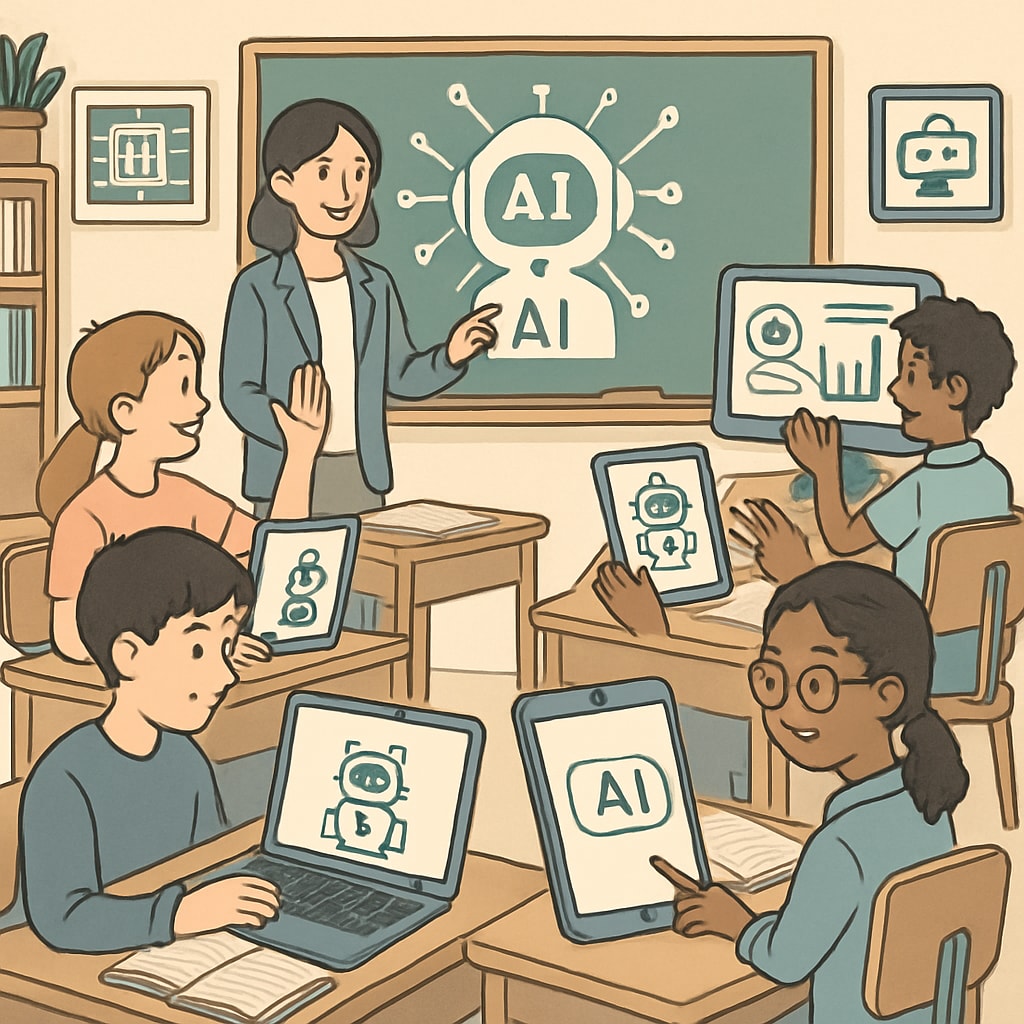Melania Trump’s recent announcement of a White House AI Task Force highlights the growing importance of artificial intelligence (AI) in shaping key aspects of American education. By emphasizing responsible AI development, this initiative aims to create a framework that balances technological innovation with ethical considerations, particularly in K12 education. As AI continues to influence classrooms, this move signals a pivotal step toward a future where intelligent systems redefine traditional learning methods while upholding core educational values.

Innovative Applications of AI in K12 Education
The integration of AI-driven technologies into K12 education has ushered in a wave of possibilities. From personalized learning platforms to advanced assessment tools, AI is transforming how students learn and teachers educate. For example, intelligent tutoring systems can adapt to individual student needs, providing customized lesson plans that address specific strengths and weaknesses. Furthermore, AI-powered analytics can track student performance and deliver actionable insights to educators, enabling data-driven decision-making.
However, the widespread adoption of AI in classrooms raises essential questions about responsible use. Melania Trump’s AI Task Force seeks to address these concerns by fostering a balanced approach that prioritizes transparency, equity, and data privacy. This ensures that AI’s capabilities are harnessed safely and ethically, without compromising student wellbeing.
Challenges and Ethical Considerations
While AI offers numerous benefits, its implementation in education is not without challenges. Issues such as algorithmic bias, data security, and unequal access to technology can hinder its effectiveness. For instance, biased algorithms may inadvertently disadvantage certain student groups, perpetuating inequalities rather than resolving them. Additionally, safeguarding student data against breaches is critical to maintaining trust in AI systems.
Melania Trump’s initiative emphasizes the importance of addressing these ethical dilemmas. The Task Force plans to collaborate with experts in the fields of AI, education, and ethics to develop guidelines that ensure fairness and inclusivity. In addition, the initiative promotes the development of AI literacy among students and educators, empowering them to understand and navigate AI technologies responsibly.

Shaping the Future of Education Policy
The White House AI Task Force under Melania Trump’s leadership represents a significant milestone in education policy. By prioritizing responsible AI development, this initiative lays the groundwork for long-term advancements in K12 education. Policymakers are expected to explore strategies for funding AI integration in schools, ensuring equitable access to technology for students nationwide.
As a result, educators and administrators must prepare to adapt to this transformative era. Professional development programs focused on AI literacy and ethical usage will be essential to equip teachers with the skills needed to leverage AI effectively. Additionally, schools will need to implement robust frameworks for monitoring and evaluating AI systems to guarantee their alignment with educational goals.
In conclusion, Melania Trump’s AI Task Force marks the beginning of a new chapter for American education. By advocating for responsible AI development, this initiative sets a precedent for integrating cutting-edge technology into classrooms while safeguarding ethical standards. As K12 education evolves, the collaboration between educators, technologists, and policymakers will be crucial to unlocking AI’s full potential while preserving the integrity of learning environments.
Readability guidance: This article balances technical insights with accessible language, ensuring clarity for non-specialist readers. Short paragraphs and lists enhance readability, while transitions such as “however,” “for example,” and “as a result” provide fluid connections between ideas.


